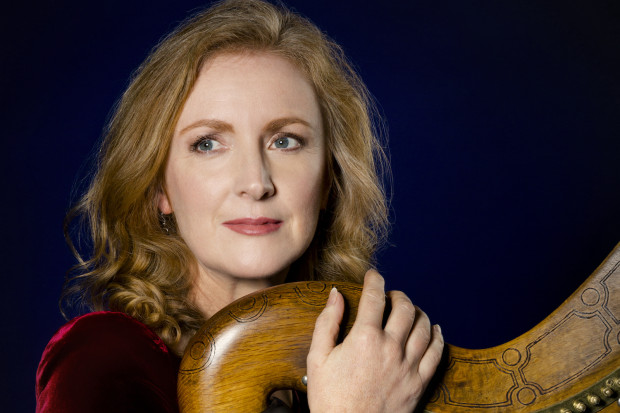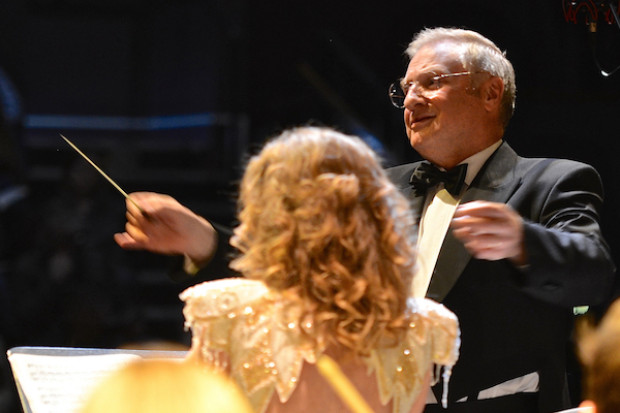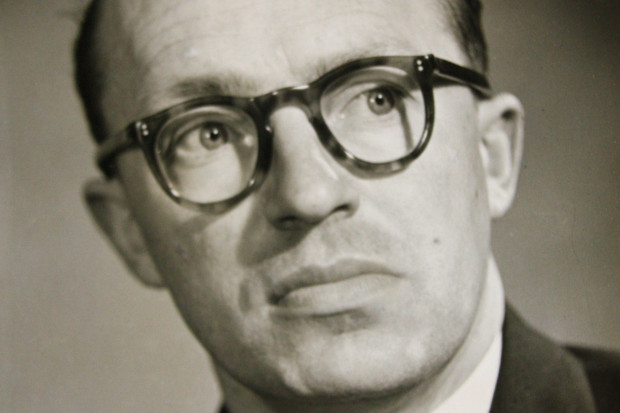
The cover image of Prince's album Musicology. 'The absence of even one undergraduate programme in popular music at an Irish university is shameful,' writes Stephen Graham.
Musicology (in Ireland)
What is musicology for? Perhaps the question can be better formulated as who is musicology for? These questions of course beg a further question, namely, what is it that musicology does, and how does it do it?
At its most basic and fundamental level, musicology can be defined as the study of music using scholarly methods. This study has traditionally occurred in scholarly contexts, existed within the support structure of humanities research grants and institutional funding, and been disseminated through academic presses, although all that is slowly changing with the growth in open access journals and web-mediated music discourses. Throughout the majority of its historical development, however, musicology can be understood to have been an academic discourse focusing on ‘academic’ music.
Many subdisciplinary partitions exist within this broad disciplinary remit. Europeans divide musicology into systematic and historical modes, where the former corresponds to the study of music as a cultural phenomenon drawing on philosophy, sociology, psychoanalysis, cognitive science and so on, and the latter to the study of specific musical works, composition theory, music reception history and aesthetics.
Ethnomusicology, which is sometimes defined by its focus on so-called world music but needs also to be defined by its ethnographic, culturally-defined methodological approach, would fall roughly into the former category, but its distinctive methods and subjects mean that it is commonly understood as a major discipline in its own right.
These broad categories break down even further and variously into, for example, computational musicology (the use of computational methods of archiving, collation, spectral analysis and statistical analysis for studying music), music analysis and music theory (where the focus is broadly on the ‘sounds-in-themselves’), music cognition and the psychology of music, music sociology (which relates closely to ethnomusicology), performance studies, new musicology (which draws heavily on cultural theory), and so on.
All that methodological talk is to say nothing of the generic subdivisions, where we would need to mention popular music studies, film music studies and paramusicology, the last of these being a fledging, semi-journalistic and semi-academic infra-discipline which focuses on marginal experimental musics or uses non-scholarly methods for scholarly ends.
Of course these somewhat sharp methodological divisions rarely hold in practice. The example of the postmodern ‘new musicologists’ indeed demonstrates the permeability of the ‘systematic’ and ‘historical’ modes; the one is usually inflected by the other, especially as the ‘notes-in-themselves’ approach common in the analytical paradigms of historical musicologists becomes untenable in a flattening international musicological landscape and in the face of an ideological critique which sees music not only as an index of ideas, but as being inextricably bound up in the discursive formation and transmission of those ideas.
The variety and scope of the musicological subdisciplines, both in terms of subject and method, speak of the deep historical roots and of the broad cultural purview of their parent discipline. That cultural purview reflects the social pervasiveness of musicology’s object — music after all remains as it has for decades at the centre of the pop cultural and other-cultural universes — just as it points towards what might be seen as a constitutive tension at the heart of musicological practice, a tension introduced in my opening series of questions.
Namely; what or who is musicology for? If the latter question about what it does might be seen to be answered at least provisionally by the naming of its various subdisciplines, the questions of what or who it is for are much harder to tackle, and they bring us into contact with the realisation that, even though music is arguably the most widely practiced and consumed art form, musicology is almost invisible in the public sphere.
This ‘honour of non-existence’, to adopt an ironically well-known Raymond Deane quotation, results in part from the specialised nature of its discourse as an academic, scholarly pursuit. Musicology does not necessarily aim for widespread exposure. It has aimed, throughout its history, at clarifying and adding to important questions of aesthetics and culture; at constructing a canon of musical value (in every sense of the term); and at training composers and musicologists in analysis and music theory. Citation on Top of the Pops has not necessarily been an important part of the agenda; Milton Babbitt’s provocation ‘Who cares if you listen’ could probably reasonably be expanded to potential audiences for musicological writings: Who cares if you read?
Leaving aside the important and interlinked questions of political economy and cultural elitism which these rarefied perspectives raise, two points of comparison can be made which will serve to highlight musicology’s unique isolation even amongst comparable academic disciplines.
Apart from a couple of hackneyed usual suspects (at least in the UK), it is fair to say that philosophy and cultural theory does not receive its fair shrift in public debate. But even though engaging with philosophical ideas in some shape or form is perhaps even more widespread an activity as engaging with music is, philosophy does not provide a fair point of comparison, since music can be said to be a part of a cultural discourse of commodities and consumable artefacts with which philosophy has had relatively little involvement.
A better comparison is with literature, and in particular literary theory. Reading and writing are vital everyday activities to most people; reading and writing in a critical or literary way are vital activities to a lot of people. Commensurate with this is the fact that literary theorists and literary critics are somewhat visible in the culture, at least in the culture of arts and review shows and newspapers.
Not so musicologists, despite the cultural prevalence of music of all forms. Of course the doing of musicology necessarily involves a process of translation from sonic to literary or intellectual discourse (we cannot analyse music through music; that is what music itself is for), in a way that analysis of books does not. However, the complete absence of musicologists from public debate is galling nevertheless. In their place on BBC arts shows, news reports, broadcasts from the Proms (‘electric’ or conventional) and so on when the topic of music comes up, instead, are performers or composers or, in other cases, some other barely-appropriate cultural figure.
The second point of comparison likely emerges out of the first. There exists a large group of people for whom music is a vitally important intellectual and aesthetic pursuit, and who are far from averse to engaging with the objects of their affection on intellectual, critical and analytical levels. These people read philosophy and challenging literature (whether that literature be speculative fiction published on the internet or mainstream literary novels), watch all types of films and television and drama, and listen to a huge variety of music. And yet though they engage with philosophers and theorists of film and literature, they do not engage with musicologists, outside of such culturally prominent figures as Theodor Adorno.
Instead, these people’s appetite for serious musical discussion gets channelled, depending on the context, through journalists such as Alex Ross or Simon Reynolds or Greil Marcus, or, going back a few years, figures such as Lester Bangs or Leonard Bernstein. And, whilst all these figures were or are clearly doing interesting work in their own right, what they do is fundamentally separable from the particular concerns and ability of musicology. Musicology is free after all to deploy rigorous empirical methods of research to uncover hidden patterns and habits, for example, or, more interestingly, to offer a space of theoretical sophistication and methodological self-reflexivity that is simply unavailable in non-academic writing on music, at least at this point in time.
Tia DeNora’s work on the listening habits and significance of music in everyday life would be impossible without deep theoretical engagement and empirical research. Similarly, Philip Bohlman’s writings on the notion of musicology, indeed of all writing on music, being an inherently political act, would look very different in the often attenuated journalistic space. Ditto the semiotic investigations of everyone from Philip Tagg to Jean-Jacques Nattiez. Ditto again the wildly exciting but culturally mute analyses of Allen Forte and others. To take a final (and, again, fairly arbitrary) example: Tom Perchard’s analytical and theoretical investigations of Thelonious Monk’s practice as an improviser generated weighty and compelling points about the differences and relationships between composed and improvised music, points that would be unavailable to a journalist writing about Monk under the aegis of normal journalistic practice.
It is not that musicology should be understood as some kind of master discipline within writing on music conceived in its broadest sense, nor indeed that it should be understood as being superior to the local forms of writing I have picked on here. It is merely the case that it offers things to the reader eager for critical engagement with music as a cultural (or as simply a sonic) practice that are unavailable elsewhere. Its rich theoretical apparatus, its deep historical roots, and its facilitation of extended reflection all mean that it is uniquely placed to offer insights and details to the huge audience for music to which at least some of that audience would surely be responsive.
Is the perennial separation of popular audiences and musicological writings the result of the failure of musicology to communicate its existence and its findings, or does the fault lie instead with cultural prejudice against theoretical sophistication and intellectual reflection? Providing a definitive answer to this question is probably impossible, but it is my guess that it would lie somewhere in the middle of these two poles. Regardless, it is surely the case that musicology needs to get better in every way at giving of itself to the world.
Musicology in Ireland
The occasion for these remarks is the ‘Musicology in Ireland’ symposium, which is due to take place on 4 April at UCD School Of Music in Dublin. The symposium features the above mentioned Philip Bohlman, who will give the John F Larchet Memorial Lecture, in addition to various key musicological figures in Ireland, including Harry White, Gareth Cox, Julian Horton, Wolfgang Marx, Lorraine Byrne Bodley, Jan Smaczny and Kerry Houston.
If musicology has a fragile position in culture internationally, its position in Ireland, at least historically, has been even frailer. In his review of Richard Taruskin’s Oxford History of Western Music, Harry White describes the project as being ‘a massive act of retrieval’. The same could be said of the musicological discipline in Ireland. It has sought to retrieve the idea of music in the Irish mind as an object worthy of serious attention and scholarly study. The fragility of the place of European art music in Ireland resulted from a variety of factors; according to White these are mainly cultural and concern colonialist imperialism and Ireland’s beholdenness to its literary imagination, but the restrictive socio-economics of the situation were surely as significant in barring the setting up and maintenance of a culture of ‘concert’ music and musicology. It is also important to remark on the welter of musical activity that went on in the island regardless. However, that being the case, if we view the situation purely from an institutional perspective, Brian Boydell’s assertion in 1951 that ‘music in Ireland… is in a shocking state’ does not seem too far wide of the mark as an assessment of concert music and musicology in the early decades of the twentieth century.
Nothing speaks more clearly of the position of musicology in a country than the situation of that country’s musicological institutions. That Ireland can be said to have been bereft of such institutions, in the main, until the 1980s, speaks more clearly of its historic musical (in some respects!) wilderness than any detailed record could hope to.
As the twentieth century progressed, particularly from the 1940s, the new Free State, in conjunction with its continued promotion of Irish traditional music, began haltingly to encourage, through appointments and programming in its national radio and television outlets, the study, composition, and performance of European-influenced classical music.
An important expression of that encouragement of musical culture can be found in the gradual foundation and accumulation in Ireland of musical institutions based on European models. The foundation of the National Concert Hall in Dublin (opened 1981) and of the RTÉ National Symphony Orchestra (in its earliest state in 1948) are two such instances of nationally recognised initiatives. But it is in the establishment of learned societies such as the Irish Chapter of the Royal Musical Association in 1988, which in 2003 transformed into the independent Society of Musicology in Ireland, in the ongoing growth of graduate programmes and permanent lectureships in music in Irish universities, in the presence there of international musicological conferences — the first, the Maynooth International Musicological Conference, was held in 1995 — and in the foundation of national institutions like the Irish World Academy of Music and Dance (1994), the Irish Traditional Music Archive (1987), and the Contemporary Music Centre (1985), that the development of Irish musicology and Irish music as state-protected discourses heavily indebted to the European cultural model receive most significant expression.
It is in White’s writings, especially his essay in the 1988 anthology Musicology in Ireland and his essays in The Keeper’s Recital: Music and Cultural History in Ireland and The Progress of Music in Ireland, that the methodological philosophy underlying Irish musicology, haltingly since Aloys Fleischmann in his 1952 book Music in Ireland and unequivocally in the last thirty years, is most explicitly expressed.
In ‘The discourse of musicology in Ireland’, from his 2005 collection, White systematically formulates his desire for an enlarged musicological collective in Ireland whose ‘internal borders become less and less significant’. That musicological model is characterised in practice by a preoccupation with the institutions of European musicology. At the same time Irish musicology engages, and in White’s eyes should attempt to continue to engage, with music as an index of the history of ideas. Thus the new Irish musicology would have at its heart the impulse shared by Adorno and the new musicologists that sees music as being expressive of culture. White also maintains the possibility of seeing a musical work as expressive only of itself. Hard, notes-in-themselves analysis should thus also find a place in Irish musical studies according to White. This is borne out in White’s plea for a ‘tolerant, diverse, and intellectually vigorous’ discipline.
The tension we can then identify in Irish musicology between European and American influences is resolved somewhat in the sheer plurality of the discourse as it exists presently on the island. White recognises this, and heaps praise in the aforementioned essay on the extension of the Anglo-American style that he identifies therein. Irish traditional music, ‘world’ music, and a broad spectrum of art music all receive gracious favour, in varying and admittedly changeable proportions, in the Irish university.
So Musicology in Ireland is a comparatively healthy state, even if it fails to form or influence public debate in the ways pleaded for in the first half of this article. All the same, Irish musicology’s methodological catholicity and permissiveness cannot mask the black hole at its heart, a black hole where popular music resides largely unbidden. Of course, popular music studies has only gotten off the ground in any substantial way internationally in the last couple of decades or so, but in that time it has singularly failed to penetrate Irish musicology’s hermetic institutional seal. The absence of even one undergraduate programme in popular music at an Irish university, apart from the practically-inclined BA in Commercial Modern Music at DIT, is as shameful as the situation of parlous musicological neglect which obtained more generally in the 1980s was, and is something that needs to be addressed soon if musicology in Ireland is to claim any sort of credibility. But perhaps this will be a topic for debate at the UCD symposium.
Symposia such as the UCD event are welcome. They serve the vital intra-disciplinary function of marking progress, taking stock, and inscribing something like a historical definition point on which future histories will hang. Musicology is a discipline forever in crisis, but it is also a discipline with unique opportunities, considering the importance of music in so many people’s lives. The symposium will provide a context for this unique tension, and perhaps provide hints to its resolution, and to the future direction of the musicological discipline in Ireland.
Full details of the symposium available here.
Published on 29 March 2012
Stephen Graham is a lecturer in music at Goldsmiths, University of London. He blogs at www.robotsdancingalone.wordpress.com.

















